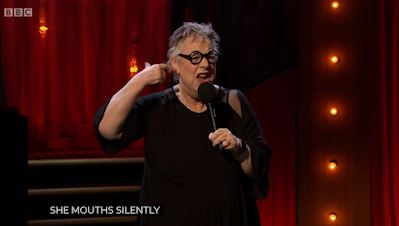09:00 Ian, our local neighbourhood window-cleaner comes to do our windows - he hasn't come since before Christmas, because of lockdown restrictions. Is he allowed to come now, however? The jury's still out on that one, but of course he doesn't come in the house, and we pay him by cash which we put in an envelope for him, so it's pretty much all non-contact, which is nice!
Lois and I can't go out this morning - not only do we have to be here till the windows have been cleaned, but we also have two deliveries coming today: a meat and deli order from Waghorne's, the butcher's in the village. Also a delivery from Cook - some ready-meals for my birthday meal.
14:30 Lois and I run the UK's only U3A Intermediate Danish group, and we hold our meetings every two weeks at this time on a Thursday on Skype. The meeting goes fairly well today, but there are the usual technical hiccups: the most serious is that although Scilla, the group's Old Norse expert, joins us without difficulty at the beginning of the meeting, we think that after about 5 minutes she somehow managed to mute herself: and it's impossible for other participants to "unmute" somebody who's done this. What madness!
We try and advise Scilla - she can hear us - but nothing seems to work, and eventually she disappears from our screens. It's one of the drawbacks of having a group where members are all elderly, that our collective grasp of internet technology is tenuous at best, to put it mildly - oh dear! I ring her up after the meeting finishes, but it's impossible to work out exactly what happened. I advise her to discuss it later with her son Tom, with whom she is staying at the moment in Frome, Somerset, so fingers crossed!
I don't think any of us would be much good at "doing stand-up", but Jo Brand, surely the UK's most elderly stand-up comedian, did an apposite and topical set recently, all about the problems of older family members trying to work zoom and similar software.
16:45 The Skype meeting ends after 2 hours and 15 minutes - my god! Lois and I feel completely drained. It doesn't help that the meeting included a 45-minute discussion - in English!! - about which local supermarket gives customers the best deals. What madness (again) !!!!!
Although in theory I'm the group's moderator I don't like to cut these digressions short. I figure that members like the chance to chat online when they have limited opportunities for chatting in the normal way because of the lockdown rules.
Joy sings the praises of Tesco's to such an extent that Jeanette, the group's only genuine Danish member, to try Tesco instead of her favourite, which is Lidl. I decide that I, as group moderator, have a duty just to check with Joy that she isn't a so-called "influencer", and is maybe being paid a commission by Tesco's but she insists she's just a so=called "free-lancer", so I guess it's probably just about okay. Let's hope so, anyway!
17:00 I recall afterwards, that needless to say, younger people sometimes have trouble with programmes like zoom, as a recent story in Onion News made clear - the story later went viral.
SAN DIEGO—Noticing the woman’s lips appeared to be moving during the afternoon Zoom meeting, local man David Keely said “Hey, I think you’re muted” Monday to co-worker Cassie Boyd, who was screaming “F*** you, f*** all of you.”
“Wait, nobody can hear you,” said Keely, was quickly joined by the rest of his co-workers in offering Boyd troubleshooting solutions as the woman stabbed a finger toward the camera and threatened to rip out their throats with her teeth the first chance she got.
“Uh oh, I don’t think your microphone is connected. Did you
try unplugging your headphones and plugging them back in? Hmm. Have you hit
‘Join audio?’ Sorry, we still can’t hear you.” At press time, Boyd had
successfully unmuted her microphone and announced “Never mind” to the group.

















No comments:
Post a Comment